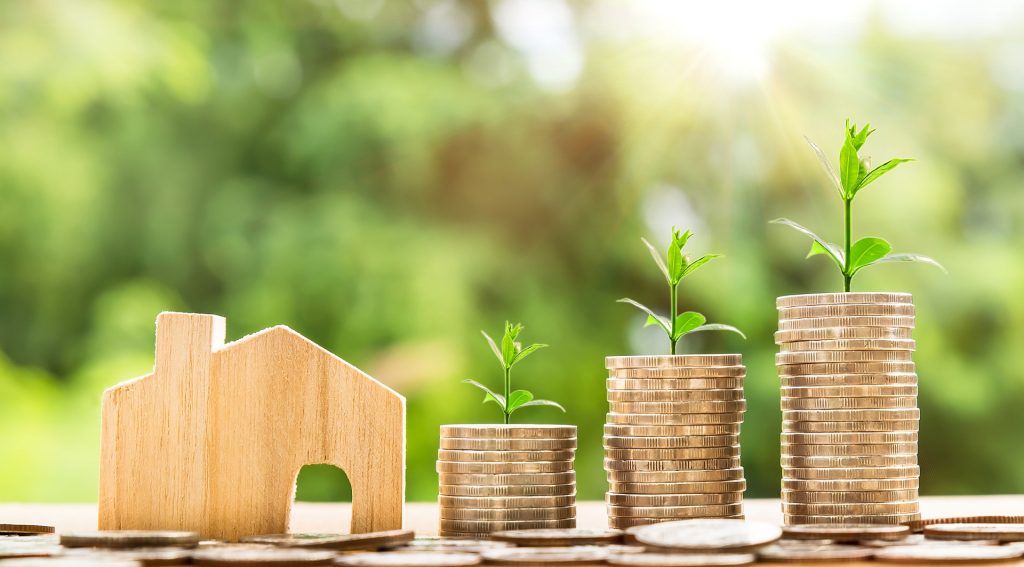State support for research and development activities of businesses is only a fraction of the OECD average
In order to enhance the competitiveness of Estonian economy and ensure sustainable development, we need to increase our investments into developing green technologies. Estonia’s weak point is that the state support for research and development in local businesses is inadequate and erratic, shows the Foresight Centre report “Green Transition Trends and Scenarios in Estonia”.

Head of the Foresight Centre Tea Danilov would like to see Estonia make bold contributions into developing green technologies to ensure that the green transition is economically profitable. “Different technologies linked to the green transition are today competing with each other and it has remained unclear in many fields which would be the breakthrough solution. However, it is undeniable that the rapid development of technologies would introduce massive changes and new economic opportunities for countries who are investing consciously and consistently in their development,” Danilov said.
The field of green technologies holds the largest potential for Estonia’s economy in research and development as well as in the generation of new ideas.
Head of Research of the Foresight Centre Uku Varblane highlighted the central role of universities and the business sector, including start-ups, in developing green technologies. “State support for businesses is key in confronting the risks of technological development, and yet the state support in Estonia for research and development is less than one third of the OECD average. In addition, support volumes have fluctuated strongly, depending on the EU Structural Fund periods and conditions. In the research and development investments of businesses, the percentage of state support has fluctuated between 4 and 11 %, and the amount of yearly support has ranged from EUR 6–7 million to EUR 20 million,” Varblane explained.
The experts involved in the research of the Foresight Centre identified the technologies that would offer the strongest support for the green transition and give Estonia the best chances in the race towards technological development.
For example, Estonia’s best opportunities in producing meat substitutes lie in test regulation and setting up of test laboratories. With Estonian researchers having world class competence in fields that are crucial for the production of meat alternatives, experts also see a future in the manufacturing of bioreactors in Estonia.
The experts point out in the report that hydrogen and the technologies of its production and use have a strong potential in becoming important export articles. Several research groups in Estonia’s higher education institutions are currently working on developing materials for fuel elements and electrolysers. Infrastructure investments into solar and wind farm networks and related hydrogen storage would create a foundation for producing green hydrogen in Estonia, as would investments into deep harbours and creating hydrogen transport capacities. The production potential of green hydrogen has been assessed at 2,000–40,000 tonnes per year by 2030.
Biorefining would help to replace oil-based products with those produced from biomaterials, and consequently reduce dependence on imported fossil fuels and strengthen energy independence. Investing into wood biorefining would give us a competitive edge in comparison to Scandinavia where wood chemistry has been in operation for the past 20 years, although mainly in the form of traditional biorefineries, while synthetic biology has been somewhat overlooked in investments.
Digitalised development of cell strains can be applied in food production and medicine, while biotechnological processes allow the production of a variety of materials, pharmaceuticals, chemicals, fuels, and foodstuffs. We are seeing cell plants being launched in Estonia, with a potential to evolve into a new sustainable bioindustry sector. This would make a strong contribution into Estonia chemical industry.
The Foresight Centre highlights in the “Green Transition Trends and Scenarios in Estonia” how the existence of technologies alone is not a guarantee for their rapid spreading – important components are the support of the society and a nurturing work environment.
The Foresight Centre is a think tank at the Riigikogu that analysis socio-economic trends and builds future scenarios. The Centre researches a range of topics in order to anticipate emerging trends and potential disruptions.
Latest news
-
11.02 2026Study: Impacts of low birthrate on pensions are primarily mitigated by funded pensions
According to the Foresight Centre’s new study “Pension Size and Purchasing Power by 2050”, a multi-pillar pension system makes pensions more resilient to demographic shocks, spreading risks between the labour market and capital markets.

 An independent think tank at the Riigikogu
An independent think tank at the Riigikogu